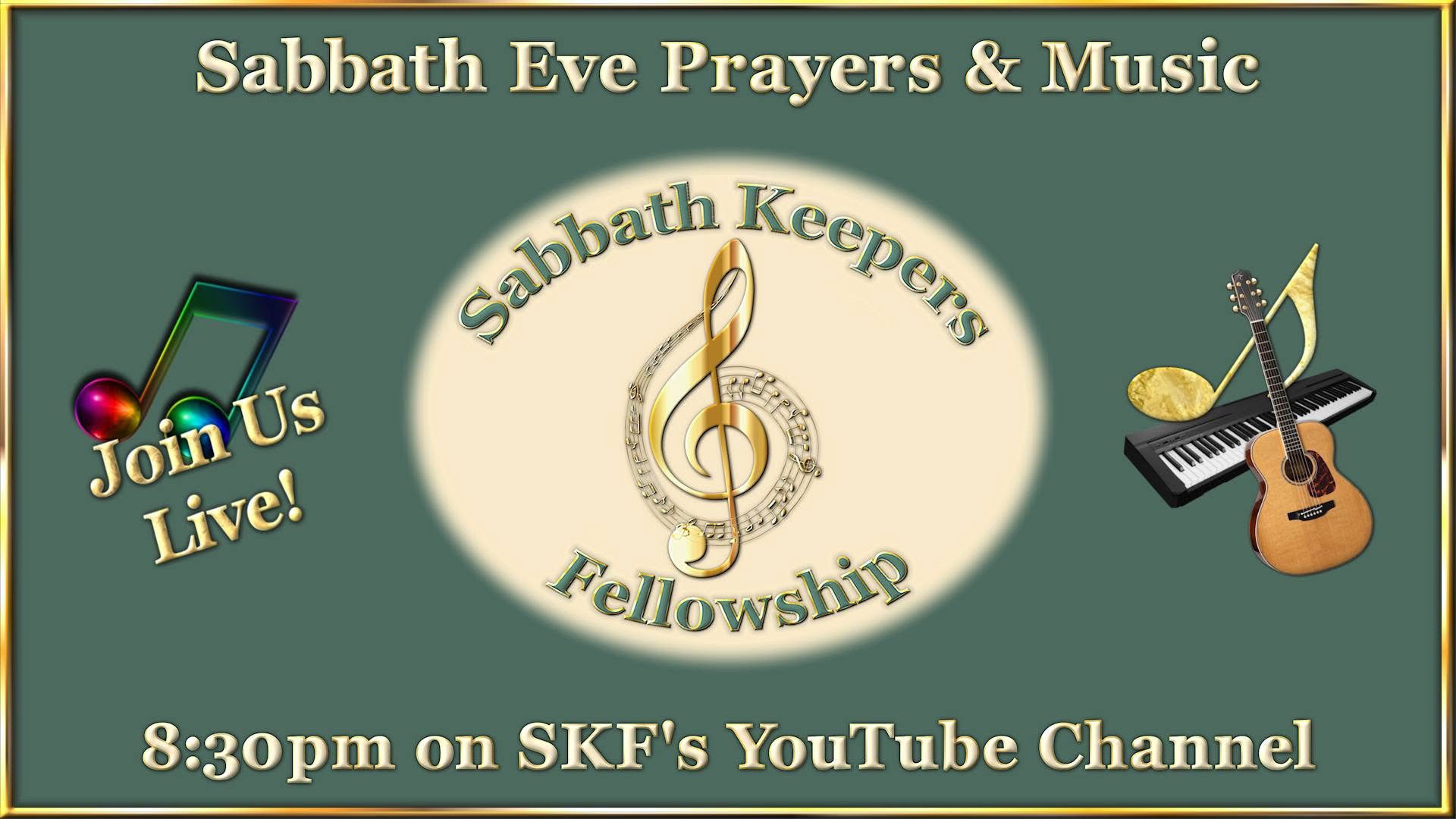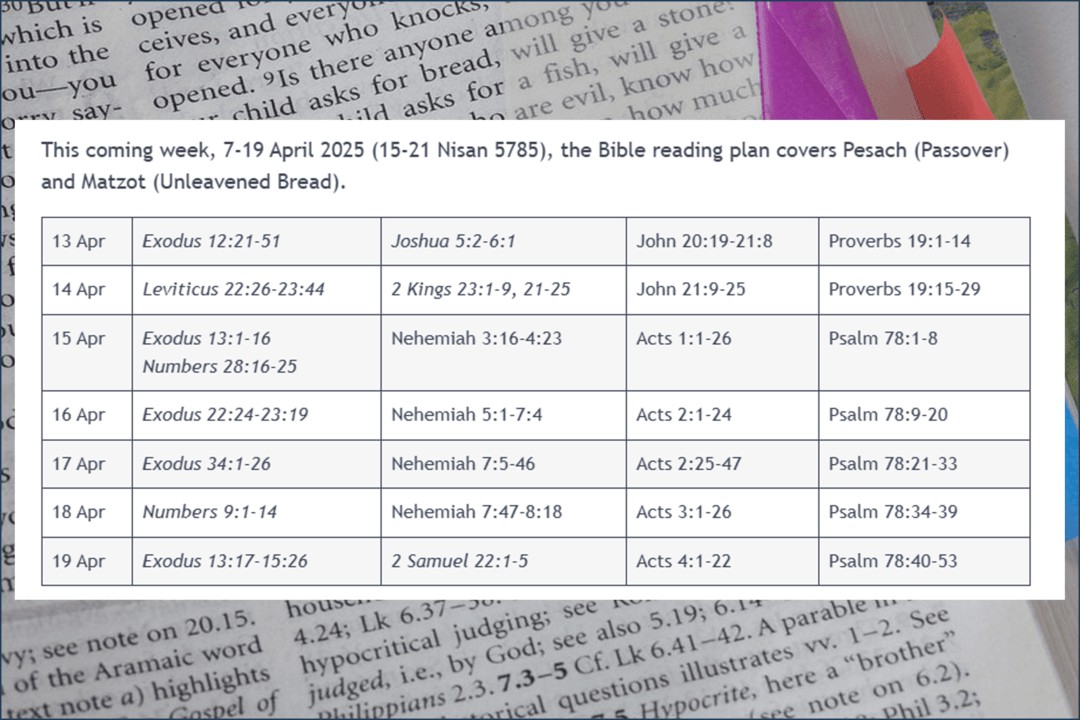Watch
Events
Articles
Market
More
Thought for Today: Shabbat April 12
Hold onto YHVH’s guiding Hand and walk with Him throughout this day. Together you will savour pleasures, and endure the difficulties the day brings. Be on the look-out for everything He has prepared for you; stunning scenery, bracing winds of adventure, cosy and quiet day for resting when you are weary and much more. Allow YHVH to be your Guide and constant Companion. He already knows every moment of how this day is going to be.



Shalom Chaverim,
You are invited to join Worship from Jerusalem in the coming days!*
https://meet.jit.si/WorshipTow....ardsThePlaceYAHChose
Shabbat + Yom Rishon (Apr. 12-13, 19)
11:00 Morning, 18:00 Evening
Yom Sheni-Yom Shishi (Apr. 14-18)
9:00 Morning, 18:00 Evening
*Israeli Time, There may be spontaneous on-site changes!



Celebrate Erev Shabbath with
Sabbath Keepers Fellowship!
Every Sabbath Eve at 8:30pm CST we will host an informal get-together on our YouTube channel to bring-in and honor the seventh-day rest. We will have:
• A short Sabbath eve prayer service
• Greetings to all present
• Highlights of the weekly Torah parasha with some commentary
• Followed by live music and discussion with whomever wishes to bring it.
His yoke is easy and the burden light! Join us for some simple celebration and fellowship to end your week. The entirety of the service should be about 1.5 hours long. If you play an instrument or sing, contact the service admin to join in. If you don’t, just listen as others do their best to honor our Creator on His holy day.
Discover the latest meeting at:
https://www.youtube.com/@sabbathkeepersfellowship




Didnt think I'd have enough time to get all my errands and chores done today, but Yah facilitated everything expediently! Now I can relax and absorb the peace and tranquilty of the next two days. I hope your prep day goes as smoothly. Enjoy Passover (whichever day you observe) and have a great rest!



This coming week, 7-19 April 2025 (15-21 Nisan 5785), the Bible reading plan covers Pesach (Passover) and Matzot (Unleavened Bread).
https://thebarkingfox.com/2025..../04/11/weekly-bible-




This coming week, 7-19 April 2025 (15-21 Nisan 5785), the Bible reading plan covers Pesach (Passover) and Matzot (Unleavened Bread).
https://thebarkingfox.com/2025..../04/11/weekly-bible-



